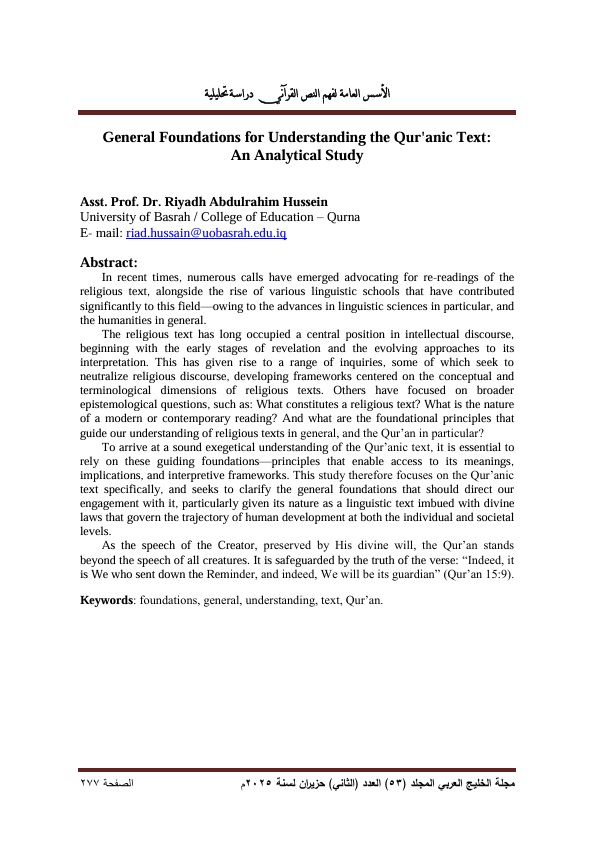General Foundations for Understanding the Qur'anic Text: An Analytical Study
Keywords:
foundations, general, understanding, text, Qur’anAbstract
In recent times, numerous calls have emerged advocating for re-readings of the religious text, alongside the rise of various linguistic schools that have contributed significantly to this field—owing to the advances in linguistic sciences in particular, and the humanities in general.
The religious text has long occupied a central position in intellectual discourse, beginning with the early stages of revelation and the evolving approaches to its interpretation. This has given rise to a range of inquiries, some of which seek to neutralize religious discourse, developing frameworks centered on the conceptual and terminological dimensions of religious texts. Others have focused on broader epistemological questions, such as: What constitutes a religious text? What is the nature of a modern or contemporary reading? And what are the foundational principles that guide our understanding of religious texts in general, and the Qur’an in particular?
To arrive at a sound exegetical understanding of the Qur’anic text, it is essential to rely on these guiding foundations—principles that enable access to its meanings, implications, and interpretive frameworks. This study therefore focuses on the Qur’anic text specifically, and seeks to clarify the general foundations that should direct our engagement with it, particularly given its nature as a linguistic text imbued with divine laws that govern the trajectory of human development at both the individual and societal levels.
As the speech of the Creator, preserved by His divine will, the Qur’an stands beyond the speech of all creatures. It is safeguarded by the truth of the verse: “Indeed, it is We who sent down the Reminder, and indeed, We will be its guardian” (Qur’an 15:9).




